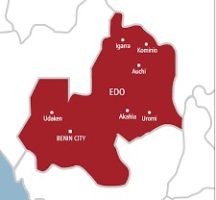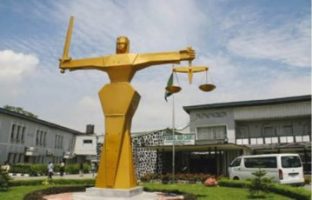Director General of the Edo State Health Insurance Commission, EDOHIC, Dr. Rock Amegor, has said over 102,000 vulnerable persons in the State are benefitting from the state’s Equity Fund and the Basic Healthcare Provision Fund, BHCPF.
Dr. Amegor disclosed this in Benin City during an event to commemorate two years of providing care to vulnerable groups under the Basic Health Care Provision Fund by the Commission.
The Fund is being managed by the Edo State Government in collaboration with the Federal Government to cater for the healthcare needs of vulnerable persons in the State.
He noted, “We are here to mark the two-year anniversary of providing healthcare services for the very vulnerable in our society. The State and Federal Governments have put funds aside to take care of those who are very vulnerable.
“We have classified the vulnerable into five groups: Those under five years of age, pregnant women, indigents, the poorest of the poorest and those above 65 years of age.”
According to him, “These vulnerable groups, as the Bible says, the poor have always been with us. It is what we started with to show the empathy of today’s government.
“We have other plans but in March 2022, we started giving service from only three facilities under the basic health care provision fund, and in that year, we had only enrolled 9,000 people into the scheme, but as of today, with the contribution of the State and Federal Government, we gave enrolled about 80,000 people into the Basic Health Care Provision Fund or the Equity Plan.
“Over 69,000 persons from the Basic Health Care Provision Fund, and another 22,000 persons from the State Equity.”
READ ALSO: FG must address root causes of decline in investor confidence -Peter Obi
Amegor added, “They are complementing each other. The beauty about the Basic Health Care Provision Fund and the State Equity Plan is that there is no co-contribution from the enrollee or patients whenever they go to the hospital.
“Those within the rural and the semi-urban and urban areas, the likes of the Ward Development Committee or the officer-in-charge of the facilities and even the Enigies and the Odionwere of the societies, they know those who are vulnerable within them.
“They are given a number to register vulnerable people so that every month we get a target of at least 20/20 per facility to make sure those living in desolate areas, those even living in urban and rural areas can get access to health care whenever and wherever they need this health care.
“If you look at the statistics of enrollment and when we call out for programmes and outreach for people to participate in their health care service, Edo North had consistently come top and so, one of the statistics that the digital agency has also drawn out and has also contained what you have said is that Edo North has a very high health-seeking behaviour even when manpower deficit is the same across board.”
He restated, “What we are doing is using that statistics to inform those in other senatorial districts to improve their health-seeking behaviour because what that generates or what it relates to is that for those who have health-seeking behavior, they have more longevity, their life expectancy is better, their quality of life is better and ultimately their productivity is better.”
Also, the State Coordinator, NHIA, Theodore Ehanire, expressed satisfaction over the contribution of the state government in keeping with its mandate to provide continuous health care assistance to vulnerable people in the State, including people living with disabilities.






